EXPLAINER: When is Manhattanhenge? Where can you see it?
Monday, 11 July 2022 14:06
Vega-C: Stacked and ready to launch
Monday, 11 July 2022 14:00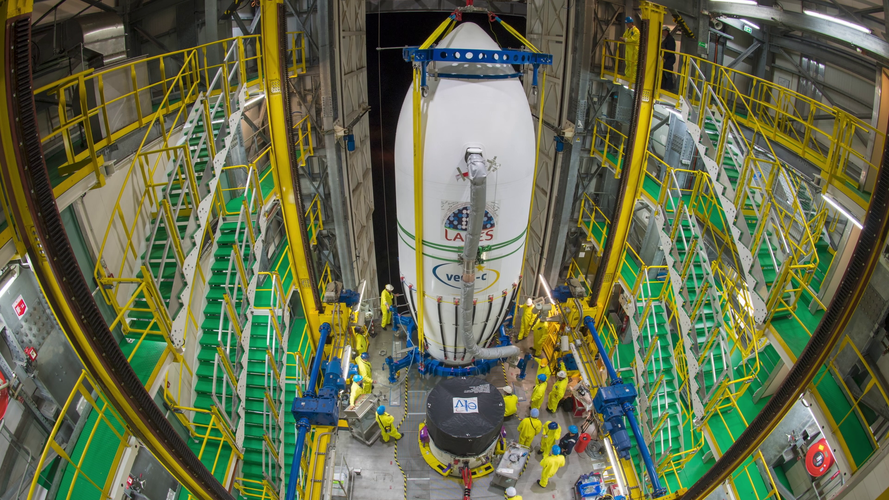 Video:
00:01:48
Video:
00:01:48
ESA’s newest launcher stands nearly 35m tall when its four stages and payload are fully stacked. For its inaugural flight, VV21, the main payload is LARES-2, a scientific mission of the Italian space agency, ASI.
T - 2 days to inaugural Vega-C launch: watch it live
Monday, 11 July 2022 13:52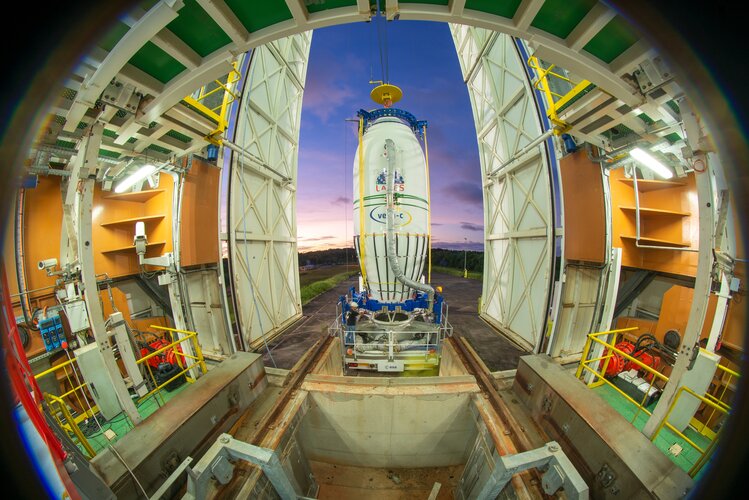
ESA’s new Vega-C rocket is nearly ready for its inaugural flight. You can follow live on ESA Web TV. Flight VV21 will lift off as soon as 13 July at 13:13 CEST, pending suitable conditions for launch.
Broadcast begins 12:45 CEST/11:45 BST on ESA Web TV
13:13 CEST/12:13 BST – liftoff
NASA's head warned that China may try to claim the moon. Two space scholars explain why that's unlikely to happen
Monday, 11 July 2022 12:55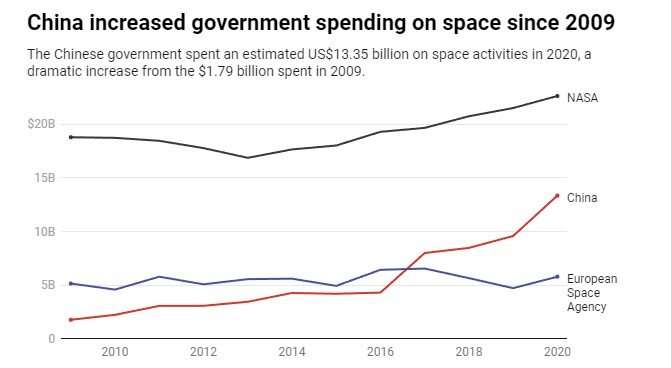
NASA Administrator Bill Nelson recently expressed concerns over China's aims in space, and in particular, that China would, in some way, claim ownership over the moon and stop other countries from exploring it. In an interview with a German newspaper, Nelson cautioned, "We must be very concerned that China is landing on the moon and saying: "It's ours now and you stay out." China immediately denounced the claims as a "lie."
This spat between the administrator of NASA and Chinese government officials comes at a time when both nations are actively working on missions to the moon—and China has not been shy about its lunar aspirations.
In 2019, China became the first country to land a spacecraft on the far side of the moon.
Department of Homeland Security publishes space policy
Monday, 11 July 2022 10:27
The Department of Homeland Security (DHS) has published an updated space policy that emphasizes its roles in cybersecurity and resilience.
The post Department of Homeland Security publishes space policy appeared first on SpaceNews.
James Webb Space Telescope opens its eyes on the Universe
Monday, 11 July 2022 08:55 Space enthusiasts are holding their breath.
The James Webb Space Telescope, the most powerful ever sent into orbit, is set Tuesday to unveil breathtaking new views of the Universe with a clarity that's never been seen before.
Distant galaxies, bright nebulae and a faraway giant gas planet are among the observatory's first targets, US space agency NASA said Friday.
But the images them
Space enthusiasts are holding their breath.
The James Webb Space Telescope, the most powerful ever sent into orbit, is set Tuesday to unveil breathtaking new views of the Universe with a clarity that's never been seen before.
Distant galaxies, bright nebulae and a faraway giant gas planet are among the observatory's first targets, US space agency NASA said Friday.
But the images them NASA reveals Webb telescope's first cosmic targets
Monday, 11 July 2022 08:55 NASA said Friday the first cosmic images from the James Webb Space Telescope will include unprecedented views of distant galaxies, bright nebulae, and a faraway giant gas planet.
The US, European and Canadian space agencies are gearing up for a big reveal on July 12 of early observations by the $10 billion observatory, the successor to Hubble that is set to reveal new insights into the origi
NASA said Friday the first cosmic images from the James Webb Space Telescope will include unprecedented views of distant galaxies, bright nebulae, and a faraway giant gas planet.
The US, European and Canadian space agencies are gearing up for a big reveal on July 12 of early observations by the $10 billion observatory, the successor to Hubble that is set to reveal new insights into the origi Let's go to Mars
Monday, 11 July 2022 08:55 Sending humans to Mars has been a dream of scientists and a large part of the population ever since Nicolaus Copernicus first postulated that it was a planet, about 500 years ago. Even before that first Soviet satellite, Sputnik 1, was sent into orbit some 64 years ago, a mission to Mars has been the subject of many science fiction articles and books. Over the past half-century technological adv
Sending humans to Mars has been a dream of scientists and a large part of the population ever since Nicolaus Copernicus first postulated that it was a planet, about 500 years ago. Even before that first Soviet satellite, Sputnik 1, was sent into orbit some 64 years ago, a mission to Mars has been the subject of many science fiction articles and books. Over the past half-century technological adv NASA Helps Decipher How Some Distant Planets Have Clouds of Sand
Monday, 11 July 2022 08:55 A new study using archival observations by the now-retired Spitzer Space Telescope found a common trait among distant worlds where the exotic clouds form.
Most clouds on Earth are made of water, but beyond our planet they come in many chemical varieties. The top of Jupiter's atmosphere, for example, is blanketed in yellow-hued clouds made of ammonia and ammonium hydrosulfide. And on worlds
A new study using archival observations by the now-retired Spitzer Space Telescope found a common trait among distant worlds where the exotic clouds form.
Most clouds on Earth are made of water, but beyond our planet they come in many chemical varieties. The top of Jupiter's atmosphere, for example, is blanketed in yellow-hued clouds made of ammonia and ammonium hydrosulfide. And on worlds To Sicily and beyond: ESA, partners debate future of space transportation
Monday, 11 July 2022 08:25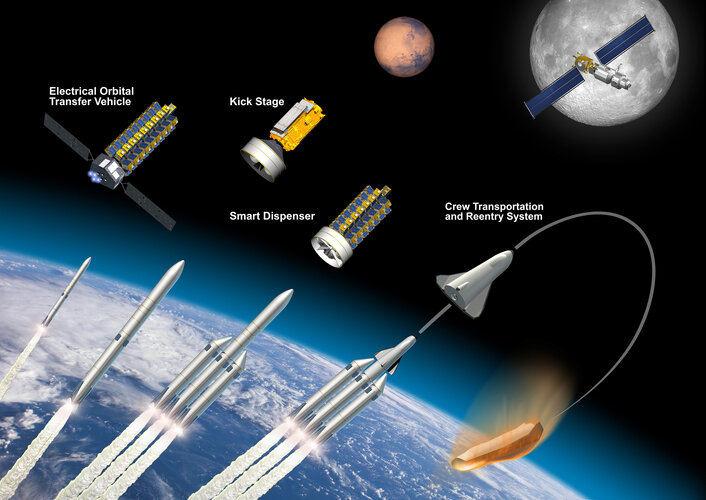
How can Europe exploit its technical, industrial and financial strengths to ensure it remains a leader in space transportation in the 2030s and beyond? How can ESA, Europe’s national space agencies and institutions, and both established and new industrial partners better co-ordinate their efforts to meet global competition that demands innovation and cost-reduction?
These were just a few of the questions discussed during an ESA-hosted roundtable conference held on 27-28 June in Palermo, Sicily. The event, called “Shared Vision for the Future of Space Transportation in Europe”, saw more than 100 representatives of Europe’s space sector discuss the technical and
ESA to embolden Europe's space exploration
Monday, 11 July 2022 07:55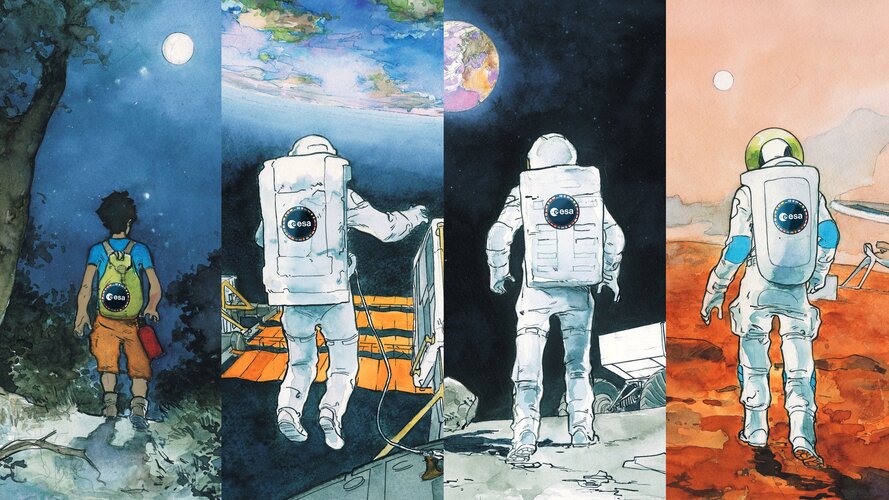
A 12-strong star-studded advisory group is to guide ESA’s human and robotic space exploration as the agency aims to increase European ambitions in space.
The James Webb Space Telescope, by the numbers
Monday, 11 July 2022 07:11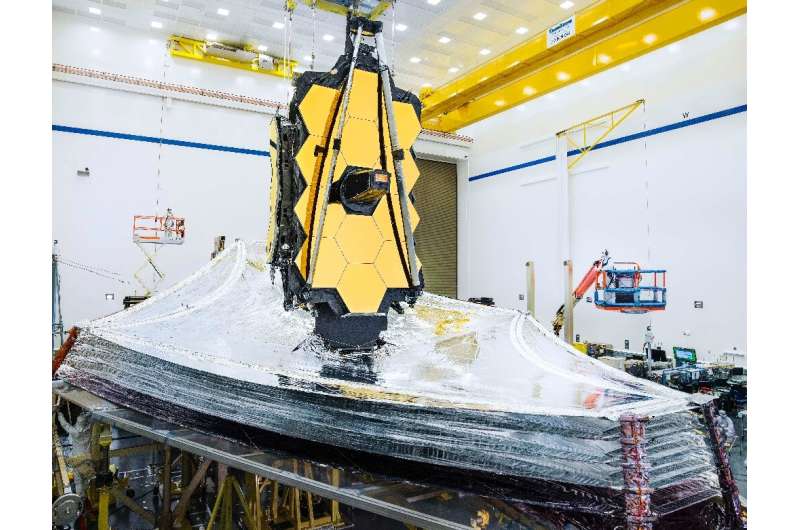
The most powerful space telescope ever built, James Webb is set to deliver its first full-color scientific images to the world Tuesday.
Here is an overview of this feat of human ingenuity, in five key figures.
More than 21 feet
The centerpiece of the observatory is its huge main mirror, measuring more than 21 feet (6.5 meters) in diameter and made up of 18 smaller, hexagonal-shaped mirrors.
The observatory also has four scientific instruments: cameras to take pictures of the cosmos, and spectrographs, which break down light to study which elements and molecules make up objects.
ESA by Interrail
Monday, 11 July 2022 06:35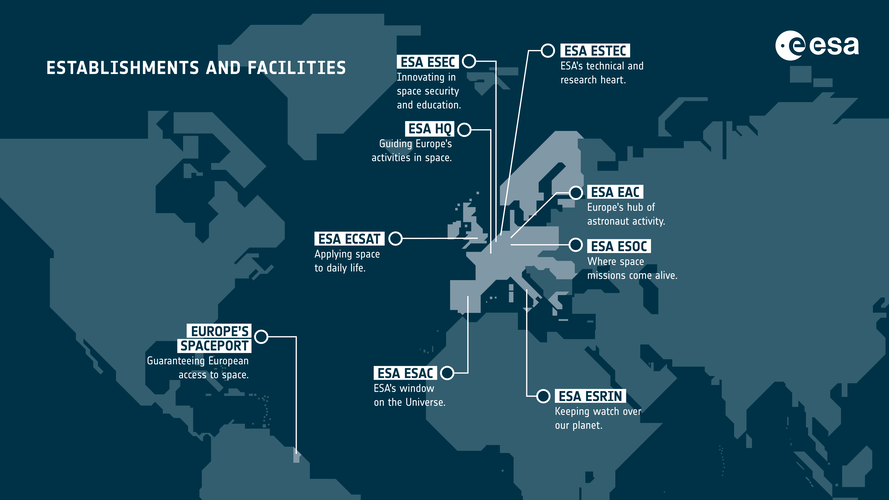
Vincent Müller, a recent school-leaver, will visit all of ESA’s European sites in the next two weeks. The lucky winner of a free Interrail ticket from the DiscoverEU programme, he decided to use the ticket to make this journey and will share his experiences in a blog to enthuse young people to pursue a career in space.
Asteroid Bennu Reveals its Surface is Like a Plastic Ball Pit
Monday, 11 July 2022 05:54 After analyzing data gathered when NASA's OSIRIS-REx spacecraft collected a sample from asteroid Bennu in October 2020, scientists have learned something astonishing: The spacecraft would have sunk into Bennu had it not fired its thrusters to back away immediately after it grabbed dust and rock from the asteroid's surface.
It turns out that the particles making up Bennu's exterior are so l
After analyzing data gathered when NASA's OSIRIS-REx spacecraft collected a sample from asteroid Bennu in October 2020, scientists have learned something astonishing: The spacecraft would have sunk into Bennu had it not fired its thrusters to back away immediately after it grabbed dust and rock from the asteroid's surface.
It turns out that the particles making up Bennu's exterior are so l Surface of asteroid Bennu soft like plastic ball pit, OSIRIS-REx spacecraft finds
Monday, 11 July 2022 05:54 An amazing surprise greeted NASA's OSIRIS-REx spacecraft as it touched down on the asteroid Bennu in 2020 - The asteroid was not what it seemed - according to research published Thursday in the journals Science and Science Advances.
After it analyzed data from the spacecraft, NASA said it would have sunk into the asteroid if it hadn't fired thrusters to lift off as soon as it collecte
An amazing surprise greeted NASA's OSIRIS-REx spacecraft as it touched down on the asteroid Bennu in 2020 - The asteroid was not what it seemed - according to research published Thursday in the journals Science and Science Advances.
After it analyzed data from the spacecraft, NASA said it would have sunk into the asteroid if it hadn't fired thrusters to lift off as soon as it collecte 
